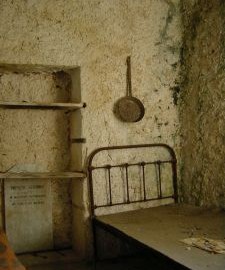B
For most pensioners, a good night’s sleep is essential to their health and well-being, yet recent research has shown that less than 11% have bought a new bed in the previous 35 years.
Although beds may seem expensive, spreading the cost over the average life expectancy for UK pensioners means that this prerequisite to a comfortable and refreshing sleep will actually cost less than 3p per person per night. This can be further reduced by renting bed space to night workers, many of whom will also undertake light household duties such as cleaning gutters and repointing chimneys as part of the tariff.
While the bed itself is important, the quality of the mattress is even more so, and you should choose one that is both supportive and flexible, with proven resistance to buttock denting and limb spasm.
The best mattresses have 4” (100mm) springs set in concentric circles, with the padding provided by two layers of ripe aubergines sandwiching a core of bowling green turf, all of which is covered with hand-stitched, open-weave ravensduck sailcloth.
Mattresses should be turned every other week (more often if you share your bed with a partner, small horse or anyone who works on a lathe) but should only be cleaned if or when the smell becomes overpowering and keeps you awake.
Water beds are potentially hazardous to pensioners, especially those who also use an electric blanket or bone meat with a sharp knife before sleeping.

